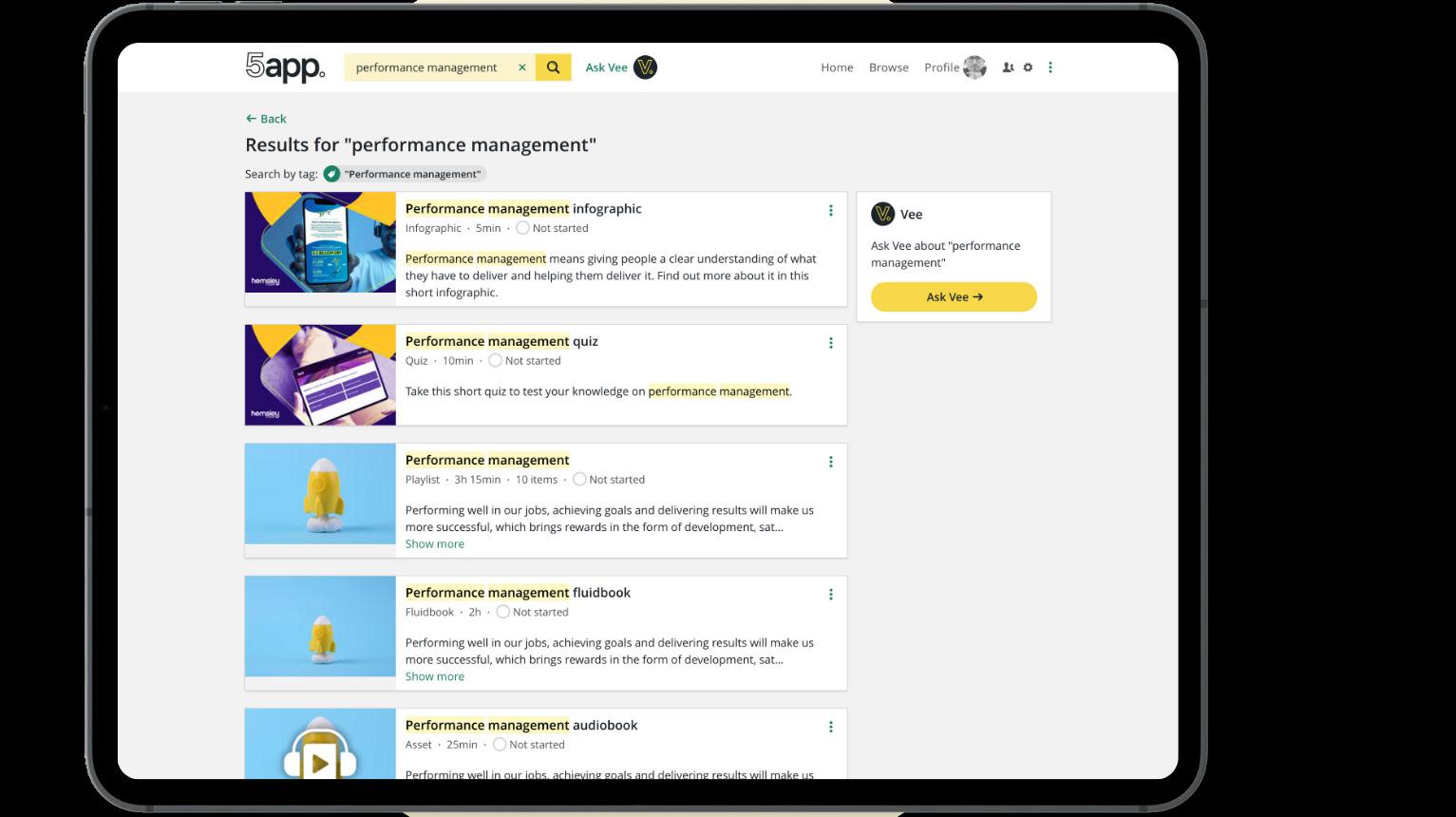
6 minute read
Why your next coach might not be human
...and that's a good thing. 5app's Philip Huthwaite explains all.
Let me start with a confession: I once scoffed at the idea of AI coaching. Surely, I thought, no machine could replicate the nuance of a good conversation with someone who just gets you. Coaching is a human thing. It needs intuition. Empathy. Lived experience. Right?
Fast forward to today and, well... I’ve changed my tune.
Coaching is broken (and has been for some time) Before we go any further, I want to make it crystal clear that I’m not saying AI coaching is going to replace humans entirely. But what it is going to do is expose how undercoached most people really are. Even if your organisation embraces coaching, does everyone benefit? Or does all the investment go into your senior leadership team, with no coaching hours left for anyone else?
And I’m not talking about the occasional “How are you getting on? Need anything?” in one-to-one manager catch-ups. I mean real, thought-provoking, needlemoving conversations that help your people – all of them – reflect, grow and perform better in their jobs.
Enter AI coaching for the masses
Theoretically, coaching is everywhere. But in reality, it’s ringfenced for a tiny minority of the workforce. Human coaches are expensive, and even if an employee is lucky enough to secure coaching time, the quality can vary wildly between coaches. Actually, a bad coach can be worse than no coach at all – you don’t want someone leading your people astray or imparting hour after hour of bad advice.
So, what happens when you pass the mic to AI? All of a sudden, coaching becomes democratised.
It’s scalable. And, dare I say it… it’s surprisingly effective. While mainstream tools like ChatGPT can try their hand at it, businesses who are serious about bringing top-quality coaching to the masses are looking to purpose-built AI coaches (or tutor agents as they’re sometimes known).
AI coaches can be trained on a company’s own content, processes and documentation, giving everyone access to highly relevant information in real time. For instance, if your business runs on agile project management, your AI coach can be trained to deliver guidance specifically around this, rather than offering a chaotic blend of Kanban, Six Sigma and scrum approaches. But they’re not just a new way to find and impart information. The new wave of AI coaches, like 5app’s very own VeeCoach, is able to roleplay, act out scenarios, quiz learners and offer feedback to improve performance over time. They will also remember a learner’s strengths, weaknesses and goals, helping keep learners accountable and consistently progressing over the weeks and months… a lot like a human coach, really.
But can AI really coach like a human?
At its core, coaching is about listening, asking the right questions and helping people uncover their own answers. It’s not a one-off session – it requires consistency, trust and dedication on both sides of the coaching relationship. It’s also not a one-way communication channel – coaching isn’t about the coach dictating what a learner should do next, or telling them how to solve a problem with no discussion. Nobody is preparing for a test here.
People may also worry that in eliminating humans from one side of the coaching relationship, we’ll lose the psychological safety and trust that builds over time. But actually, the opposite is true.
Traditional one-on-one coaching isn’t for everyone. Some people worry about asking silly questions or being judged for not picking up new skills quickly enough – and that’s before you even consider the awkward silences. With AI coaching, none of that matters. An AI coach is simply there to help, not to judge.
It can draw on best-in-class coaching frameworks, adapt in real time (such as stepping up to harder scenarios for faster skill mastery) and, importantly, be there when it’s needed, whether that’s in the 3pm slump or during an 11pm bout of pre-pitch day paranoia.
So, maybe AI can’t coach like a human – maybe it can do it even better.
The human touch still matters… to some extent AI coaching isn’t perfect. It can’t pick up on your body language, or know when your attention is waning. It can’t see you blinking back tears of frustration. It doesn’t know if everyone in the company is on edge from rumours of a big company restructure.
But if we’re being honest… did any of us ever get that from standard corporate coaching? That’s not a criticism of coaches – it’s just a reality that few coaches have the time or capacity to do more than what they’re being explicitly paid to do, whether that’s levelling up communication skills, helping managers become better decision makers or injecting a healthy dose of empathy into the leadership team.
Of course, I’m not saying we should replace human relationships with AI. Building great working relationships between managers, employees and colleagues is crucial for any successful business – but that should go much deeper than the occasional Slack gif or some rushed bullet points of feedback on a Google doc.
Maybe AI coaching is the wake-up call L&D needs It’s no secret that L&D teams often feel like order takers. If the CEO wakes up one day and decides that the management team needs to get better at change management, and their neighbour’s best friend’s cousin happens to know a great coach, it’s easy to see where that conversation will go.
To be clear, if you have a brilliant human coach, you should hold onto them with all your might! But maybe that’s not the only answer. The L&D budget isn’t a bottomless pit of money (don’t we all know it), and AI coaching can be a great way to bring the benefits of personalised, on-demand coaching to a wider audience without breaking the bank.
And really… if it helps someone navigate a tricky challenge, reflect on their goals or feel more confident in their skills, why does it matter if it came from Nigel in the third-floor meeting room or Vee the AI coach?
The new era of coaching
As a busy CEO, I have no interest in hype or gimmicks. I care about what works, and what I’m seeing time and time again is that the teams who thrive are those who talk about the hard stuff. I believe in reflecting and resetting to instill real growth, and coaching plays a big part of that. If an AI coach can help me do that more often, for more people, with more consistency? Count me in. Maybe it’s about time we humans had a bit of healthy competition!
VeeCoach promo video: https://www.youtube.com/watch?v=1PYoAlMXsyg
VeeCoach webinar recording: https://www.youtube.com/watch?v=nbqb1LVO9dw


Philip Huthwaite is 5app’s CEO. He provides hands-on expertise across sales, marketing and product development, and has a strong interest in using AI to drive success in learning and talent management.










